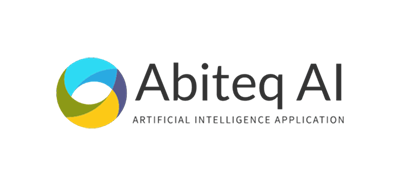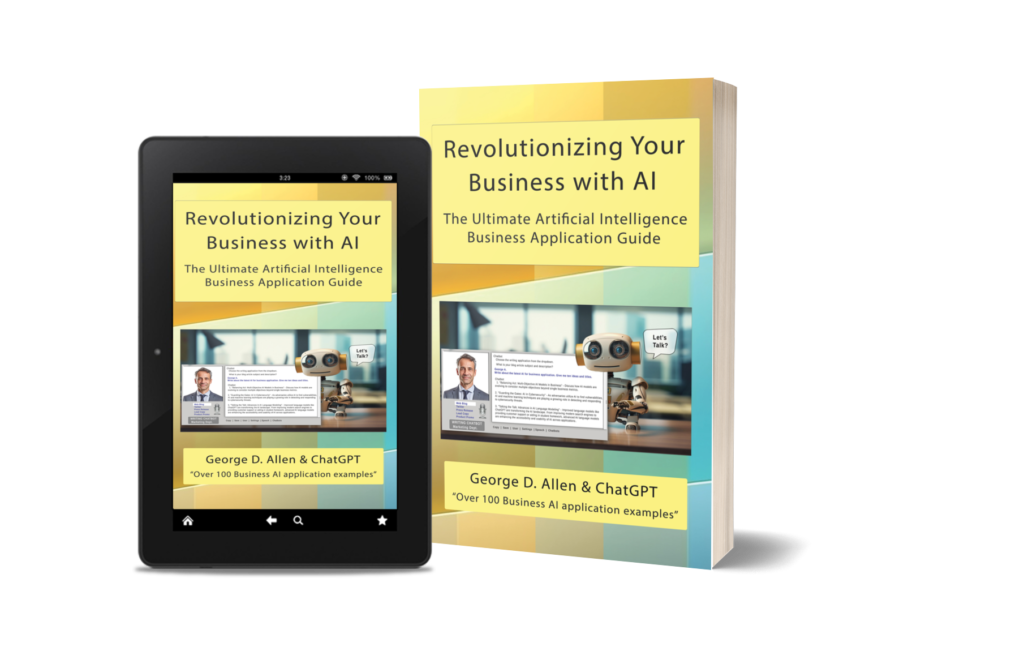AI applications have the potential to revolutionize various industries by addressing specific challenges and offering tailored solutions. We will delve into AI-driven solutions in nine industries, discussing industry-specific challenges and how AI can help overcome these hurdles.
The industries covered in this article:
- Healthcare
- Finance
- Retail
- Manufacturing
- Agriculture
- Transportation
- Energy
- Education
- Entertainment.
Healthcare
AI has the potential to transform the healthcare industry by improving diagnostics, personalizing treatment plans, and streamlining administrative tasks. By leveraging AI, healthcare providers can enhance patient outcomes, reduce costs, and optimize resource utilization.
- Diagnostics: AI-driven image analysis can improve the accuracy and speed of medical diagnoses, such as detecting tumors in radiology scans or analyzing pathology slides.
- Personalized Treatment: AI can analyze large datasets to identify the most effective treatment options for individual patients, considering factors like genetic makeup, lifestyle, and medical history.
- Drug Discovery: AI-powered algorithms can help accelerate the drug discovery process by predicting the efficacy and safety of potential compounds, optimizing clinical trial designs, identifying potential adverse effects, and identifying suitable candidates for clinical trials.
- Remote Patient Monitoring: AI can analyze data from wearable devices to monitor patients’ health, predict potential health issues, and provide personalized recommendations for maintaining well-being.
- Virtual health assistants: AI-powered chatbots and telemedicine platforms can provide patients with remote access to healthcare professionals, improving accessibility and reducing the burden on healthcare facilities.
- Administrative Automation: AI can streamline tasks such as appointment scheduling, billing, and medical record management, freeing up healthcare professionals to focus on patient care.
Finance
AI can help financial institutions enhance customer experiences, manage risk, and optimize operations. By utilizing AI, banks, insurance companies, and investment firms can improve decision-making, reduce costs, and increase revenue.
- Fraud Detection: AI algorithms can analyze transaction data to identify suspicious activity and prevent fraud, protecting customers and financial institutions from potential losses.
- Credit Scoring: AI can assess creditworthiness more accurately by considering alternative data sources such as social media and online behavior, and identifying patterns that may indicate the likelihood of default.
- Robo-advisory: AI-powered financial advisors can provide personalized investment advice and portfolio management, catering to a broader range of customers at a lower cost.
- Algorithmic Trading: AI can analyze market data and execute trades based on predefined strategies in real-time, helping investors capitalize on market opportunities and manage risk more effectively, reducing the impact of human emotions on trading decisions..
- Insurance Underwriting: AI can assess risk and determine premiums more accurately by analyzing large datasets and identifying patterns that may impact the likelihood of claims.
- Customer service: AI-powered chatbots and virtual assistants can provide customers with personalized financial advice and support, improving engagement and satisfaction.
Retail
AI can help retailers optimize supply chains / inventory management, personalize customer experiences, and streamline operations. By leveraging AI, retailers can drive growth, reduce costs, and enhance customer satisfaction.
- Inventory Management: AI can forecast demand and optimize inventory levels, reducing stockouts and overstocking, and minimizing waste.
- Personalized Recommendations: AI can analyze customer data to provide personalized product recommendations, enabling retailers to target marketing efforts more effectively and driving sales.
- Pricing Optimization: AI can dynamically adjust pricing based on factors such as demand, competitor pricing, and inventory levels, maximizing revenue and profitability.
- Chatbots and Virtual Assistants: AI-powered chatbots can provide customer support and answer queries, reducing wait times and improving customer experiences.
- Store Layout Optimization: AI can analyze in-store data to optimize store layouts, product placements, and promotional displays, enhancing customer experiences and driving sales.
- Virtual fitting rooms: AI-powered augmented reality (AR) technology can enable customers to virtually try on clothing and accessories, improving the online shopping experience.
Manufacturing
AI can help manufacturers optimize production processes, improve quality control, and enhance predictive maintenance. By implementing AI solutions, manufacturers can increase efficiency, reduce waste, and minimize downtime.
- Process Optimization: AI can analyze production data to identify inefficiencies and recommend adjustments, improving overall productivity and resource utilization.
- Quality Control: AI-powered image recognition can detect defects and anomalies in real-time, enabling manufacturers to address quality issues more proactively.
- Predictive Maintenance: AI-driven sensors and analytics can anticipate equipment failures and schedule maintenance more effectively, reducing downtime and operational costs.
- Supply Chain Optimization: AI can help manufacturers manage complex supply chains by predicting demand, identifying bottlenecks, and optimizing transportation routes.
- Workforce Management: AI can support manufacturers in managing their workforce, from recruitment and onboarding to performance management and employee retention.
- Collaborative robots: AI-powered robots can work alongside humans to perform tasks such as assembly, material handling, and inspection, increasing productivity and reducing the risk of workplace injuries.
Agriculture
AI can help farmers optimize crop production, enhance resource management, and improve sustainability. By leveraging AI, the agricultural industry can increase productivity, reduce waste, and minimize environmental impact.
- Precision Agriculture: AI can analyze data from sensors, drones, and satellites to provide farmers with detailed insights into soil, weather, and crop conditions, enabling them to make informed decisions about planting, irrigation, and fertilization.
- Pest and Disease Detection: AI-powered image recognition can identify pests and diseases in real-time, helping farmers take timely action to minimize crop damage.
- Yield Prediction: AI can analyze historical and real-time data to predict crop yields more accurately, enabling farmers to optimize resource allocation and plan for market fluctuations.
- Automated Farming Equipment: AI can control autonomous farming equipment such as tractors and drones, increasing efficiency and reducing labor costs.
- Supply Chain Optimization: AI can help farmers optimize their supply chains by predicting demand, identifying inefficiencies, and minimizing transportation costs.
Transportation
AI can help optimize transportation systems, reduce congestion, and enhance safety. By implementing AI solutions, the transportation industry can improve efficiency, minimize environmental impact, and save lives.
- Traffic Management: AI can analyze traffic data to optimize traffic signal timings, reduce congestion, and improve traffic flow.
- Autonomous Vehicles: AI-powered self-driving cars can enhance safety, reduce human error, and optimize fuel consumption.
- Predictive Maintenance: AI-driven analytics can help transportation companies anticipate equipment failures and schedule maintenance more effectively, reducing downtime and operational costs.
- Route Optimization: AI can analyze data to identify the most efficient routes for transportation, reducing fuel consumption, and minimizing delivery times.
- Smart Infrastructure: AI can help manage and maintain transportation infrastructure, such as bridges and roads, by predicting potential issues and recommending proactive maintenance.
Energy
AI can help optimize energy production, distribution, and consumption, enhancing efficiency, reducing costs, and minimizing environmental impact.
- Demand Forecasting: AI can analyze data to predict energy demand more accurately, enabling utilities to optimize resource allocation and avoid overproduction.
- Renewable Energy Integration: AI can help manage the integration of renewable energy sources, such as wind and solar, by predicting fluctuations in output and optimizing energy storage and distribution.
- Grid Management: AI can analyze data from sensors and smart meters to optimize grid performance, prevent outages, and enhance the reliability of energy supply.
- Energy Efficiency: AI can analyze building and equipment data to identify inefficiencies and recommend adjustments, reducing energy consumption and costs.
- Predictive Maintenance: AI can help energy companies anticipate equipment failures and schedule maintenance more effectively, minimizing downtime and operational costs.
Education
AI can help enhance learning experiences, personalize education, and streamline administrative tasks. By leveraging AI, educational institutions can improve student outcomes, reduce costs, and optimize resource utilization.
- Personalized Learning: AI can analyze student data to provide personalized learning experiences, tailoring content and pacing to individual needs.
- Intelligent Tutoring Systems: AI-powered tutoring systems can provide real-time feedback, assess student understanding, and adapt instructional strategies to maximize learning.
- Learning Analytics: AI can analyze data to identify patterns and trends in student performance, enabling educators to make informed decisions about interventions and support.
- Administrative Automation: AI can streamline tasks such as enrollment, scheduling, and grading, freeing up educators to focus on teaching and student engagement.
- Adaptive Assessment: AI can create adaptive assessments that adjust question difficulty and format based on a student’s performance, providing a more accurate measure of their understanding and abilities.
Entertainment
AI can help create immersive, personalized, and interactive experiences in the entertainment industry, revolutionizing content creation, distribution, and consumption.
- Content Creation: AI can assist in generating storylines, characters, and visuals, accelerating the creative process and enabling new forms of artistic expression.
- Personalized Recommendations: AI can analyze user preferences and behavior to recommend movies, music, and other content tailored to individual tastes.
- Interactive Experiences: AI can power interactive narratives and gaming experiences that adapt to user choices and actions, providing unique and engaging experiences.
- Content Optimization: AI can analyze audience data to optimize content for different platforms, devices, and demographics, maximizing reach and engagement.
- Virtual Reality and Augmented Reality: AI can enhance virtual and augmented reality experiences by generating realistic environments, characters, and interactions, further blurring the line between the digital and physical worlds.
Conclusion
We explored the potential of AI applications to transform various industries, addressing industry-specific challenges and offering tailored solutions. We discussed the significant impact AI can have in healthcare, finance, retail, manufacturing, agriculture, transportation, energy, education, and entertainment. Each industry can benefit from AI-driven solutions, helping businesses optimize their operations, enhance efficiency, reduce costs, and improve customer experiences.
As AI continues to advance, its impact on businesses will only grow more profound. By understanding the unique challenges and opportunities within their industries, businesses can leverage AI solutions to stay ahead of the competition and drive innovation. While the specific applications of AI will differ across industries, the potential for AI to revolutionize the way we live, work, and interact is undeniable. By staying informed and adapting to the changing landscape, businesses can harness the power of AI to create a more efficient, sustainable, and prosperous future.

